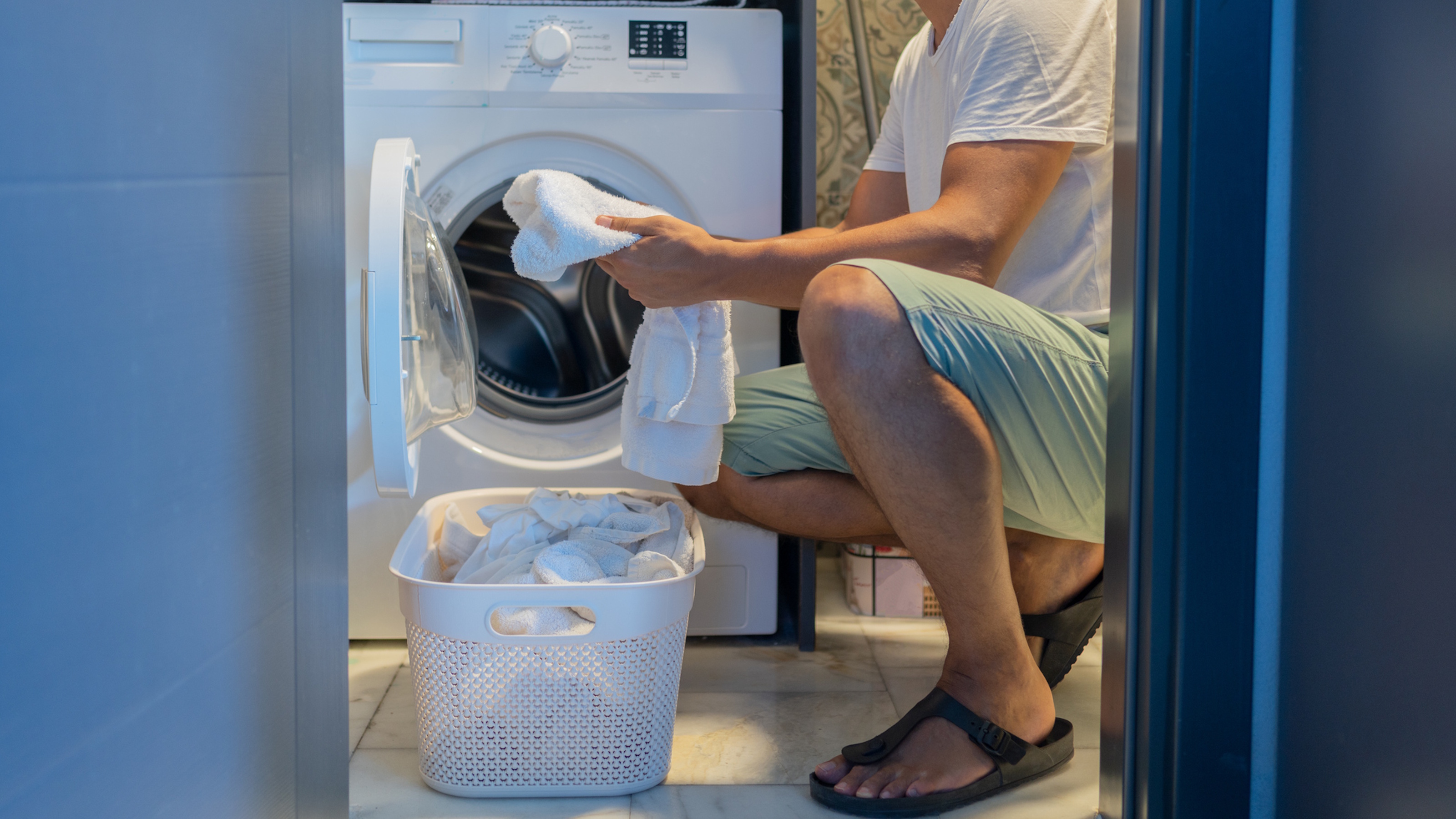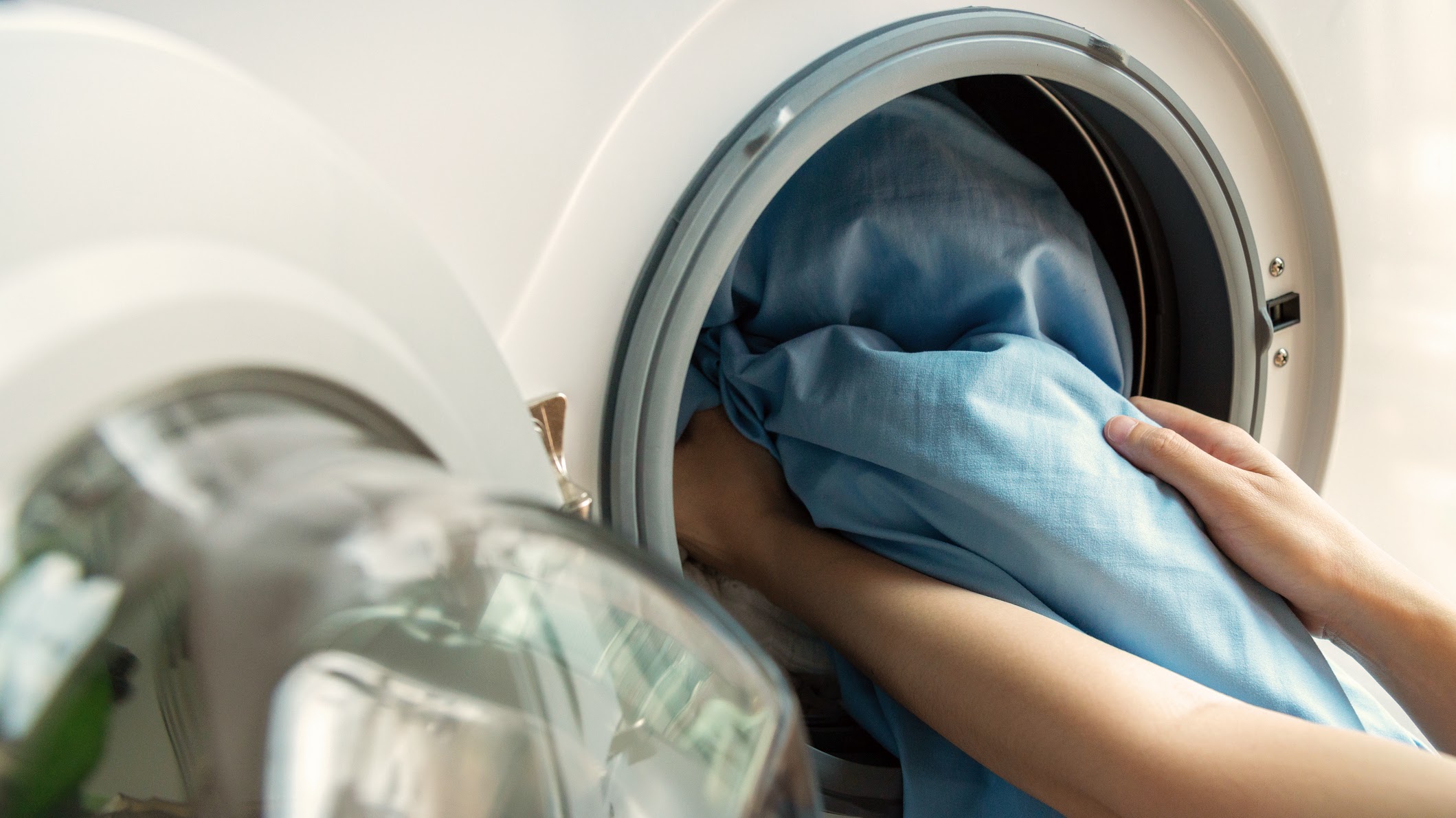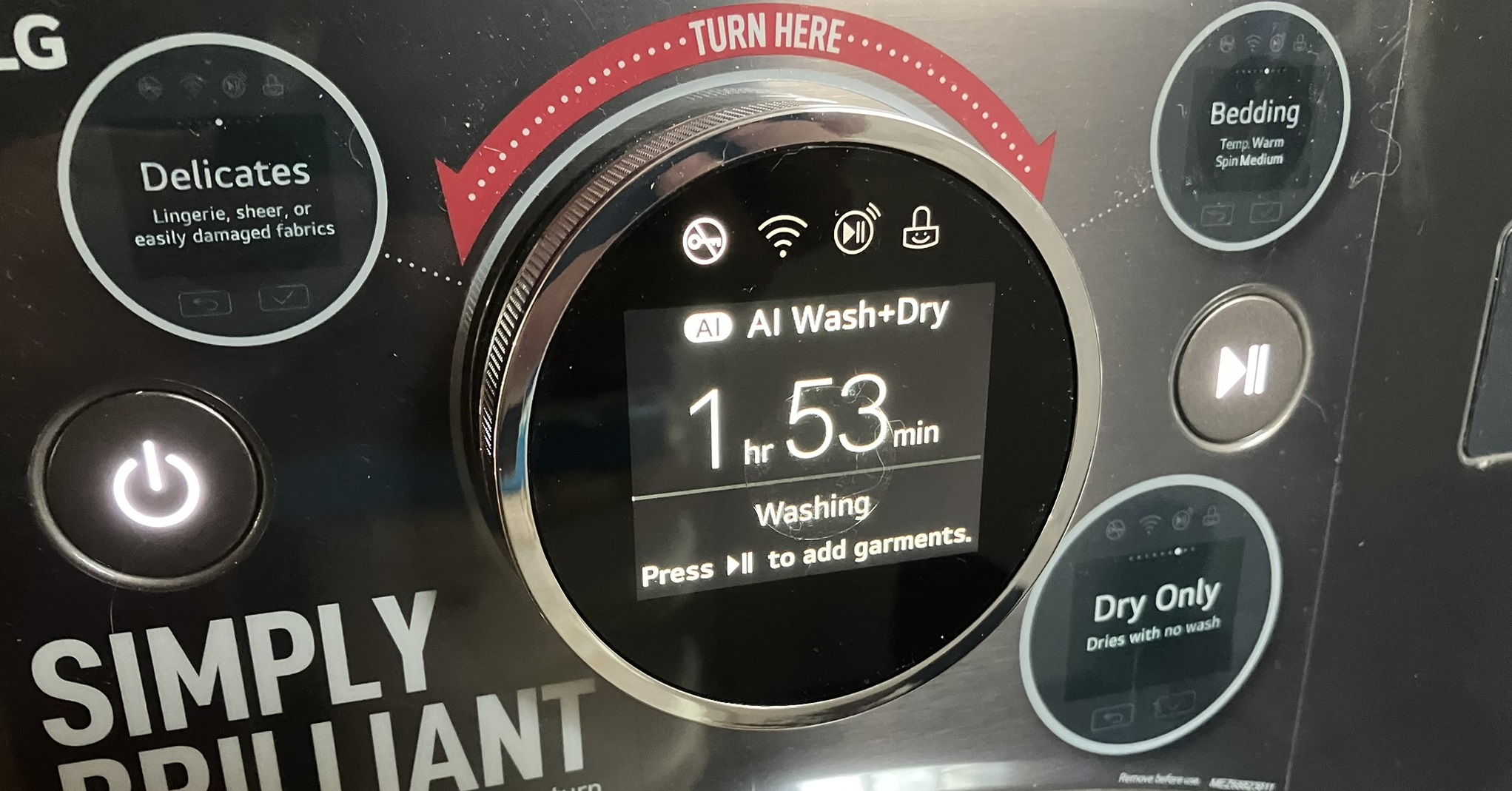How much is a washer-dryer combo? We break down the costs, both obvious and hidden
Washer-dryer combos are popular for their compact design and practicality. We explore pricing factors to help you select the best model.

Washer-dryer combos have become increasingly popular because of their compact designs and practicality—huge assets in modern life and homes. These all-in-one machines seamlessly combine washing and drying capabilities, making them ideal for those living in apartments or tiny homes or anyone who wants to streamline their laundry process.
However, it's essential to consider the cost before making the purchase, as it can vary greatly depending on several factors. Everything from brand and features to market trends can influence the price of the best washer-dryer combos, and this article will explore everything that impacts the price tag.
So keep reading to learn practical tips before shopping and to ensure you get the best model for your needs and budget.
Entry-level models
Entry-level washer-dryer combos will appeal to those who want basic washing and drying functions but don't want to overspend. At this end of the market, you can expect to pay around $500-$800.
These machines don't have advanced features but should perform standard wash and dry cycles well, making them good for modest needs. They're often even portable, making them ideal for apartments and more compact homes. This, of course, means that the load capacity is also smaller, averaging about 2.0-3.5 cubic feet, and drying time can vary.
One thing to consider is energy efficiency, as cheaper models may not be as energy-friendly as those with a higher price tag. You'll have to search for a model with a good energy rating, but they do exist.
Mid-range models
In general, mid-range washer-dryer combos cost between $800 and $1,500, providing a good balance of affordability and desirable features.
Sign up to receive the latest news, reviews, buying guides and deals direct to your inbox
A primary advantage of these mid-tier models is their expanded functionality compared to budget buys. They typically offer a more diverse array of wash and dry cycles tailored to different needs, such as delicate fabrics, quick wash settings, and steam cleaning. They also tend to be slightly larger, with 3-4 cubic feet of capacity.
You can expect to see Energy Star ratings in a good proportion of mid-range washer-dryers, so they're a little more energy and water-efficient. Drying performance is also generally better, though they will still exceed those of the best dryers. As a bonus, many mid-range models are designed to operate quietly.
High-end models
High-end washer-dryer combos, priced between $1,500 and $2,500 or more, cater to those who want superior performance, innovative features, and efficiency.
These more expensive models are likely to include smart technology. This means that the appliances connect to Wi-Fi, enabling remote control and monitoring through smartphone apps. Besides this, a wider variety of settings are usually tailored to your laundry needs. These machines can wash delicate, heavy-duty items and eradicate allergens.
You'll get larger capacities, too, often around 4.0 cubic feet more, which means you can tackle larger loads and reduce the frequency of laundry days. They're more energy-efficient, with Energy Star certifications more common, and you won't be bothered by noise levels while it's operating.

Brand
The brand of a washer-dryer combo significantly influences its price, features, and reliability. Some brands are known for their quality, innovation, and customer service, so they're more expensive.
LG: LG washer-dryer combos typically cost between $1,200 and $2,000. They feature smart technology, steam cleaning, and large capacities.
Samsung: Samsung washer-dry combos generally cost between $1,100 and $2,200. These models often feature Wi-Fi connectivity and powerful drying capabilities.
Whirlpool: Whirlpool washer-dryer combos are popular for many families because of their durability and straightforward functionality.
Bosch: Bosch washer-dryer combos usually range between $1,500 and $2,500 and are known for their quiet operation and advanced engineering.
Maytag: Maytag offers quality appliances between $900 and $1,700. Their washer-dryer combos are designed for heavy use and come with extended warranties.
Features
The features of a washer-dryer combo determine how much it costs and its overall value. Although basic washer-dryer combos have essential features, mid-range, and high-end models have advanced features that improve performance and convenience.
Wash and Dry Cycles: Basic models, which cost $500 to $800, typically include standard wash and dry cycles. Mid-range models, which cost $800 to $1,500, usually have delicate, heavy-duty, and quick wash cycles. In addition to steam cleaning and allergen removal, high-end models typically cost $1,500 to $2,500.
Capacity: A typical entry-level combo holds 2.0 to 3.5 cubic feet of space, perfect for small households. High-end models usually hold more than 4.0 cubic feet, while mid-range ones hold generally 3.0 to 4.0 cubic feet. Washing bigger loads is more manageable, so you don't have to do laundry as often.
Energy Efficiency: Models with Energy Star ratings usually cost more, but they can eventually save you money on utility bills. Mid-range and high-end models usually emphasize energy efficiency more than entry-level models.
Smart Features: A high-end model may have smart technology, which allows you to control the appliance via smartphone apps and receive maintenance alerts.
Design
Not only does the design of a washer-dryer combo affect its aesthetic appeal, functionality, and price. It's all about size, build quality and user interface.
Size and Dimensions: In small spaces like apartments, compact models usually cost $500 to $1,000. With a smaller capacity (around 2.0 to 3.0 cubic feet), these combos are great. They typically range from $800 to $1,500, balancing space efficiency and capacity.
Build Quality: Stainless steel drums and durable exteriors are standard features in mid-range models, typically costing between $800 and $1,500, while entry-level models may use more basic plastics. Models with premium finishes, such as brushed stainless steel and sleek designs, usually cost $1,500 to $2,500.
User Interface: It's more common for high-end models to have advanced user interfaces, such as touchscreen controls and digital displays. Basic models, usually under $800, may have more straightforward dials and buttons. High-tech models can cost from $1,200 to $2,500.
Additional costs
When considering the purchase of a washer-dryer combo, remember that there is extra stuff to consider, as these expenses can significantly impact your overall budget.
Installation Fees: Many retailers offer installation services, which cost $100 to $200. If you choose professional installation, ensure you know if it's included in the price or extra. It usually involves connecting the unit to your existing plumbing and electrical systems.
Delivery Charges: Shipping fees can vary significantly between retailers. You might pay $50 to $150. Some stores offer free shipping on certain purchases or promotions, so it's worth asking.
Reviews
Whirlpool 24" Stainless Steel AI Dishwasher Review
Napoleon TravelQ PRO285 Portable Gas Grill review
Dreame L40 Ultra Robot Vacuum Cleaner and Mop review: almost hands-free cleaning
GE Profile Smart Mixer with Auto Sense review: a powerful, thorough mixer
Echo eForce DPB-2500 review: a leaf blower as a snow removal tool?
DPAS-2100 + Pro Paddle Attachment review: a new way to remove snow this winter?
Midea MAD53109APK 5.5QT Air Fryer review: a small, simple, and highly effective option
Eureka J15 Pro Ultra Robot Vacuum review: hands-free cleaning for busy families
Extended Warranty: Most washer-dryer combos come with a standard manufacturer's warranty, but for added peace of mind, consider getting an extended warranty. These extended plans typically cost between $100 and $300.
Maintenance and Repairs: Depending on the issue, you may incur maintenance and repair costs over time. Regular maintenance can help prolong the life of your unit, while unexpected repairs can cost $100 to $500.
Utilities: It's wise to budget for utility expenses, such as water, electricity, and detergent, which can vary depending on usage.

Should you buy a washer-dryer combo?
In small apartments or houses with limited laundry space, a washer-dryer combo offers a compact solution because two appliances are merged into one. If you don't have a lot of floor space, this can be a big deal.
It's also convenient. These machines let you wash and dry in one cycle, which is great for busy people. Those with hectic schedules can also save time by not having to transfer laundry between machines.
Of course, washer-dryer combos can cost anywhere from $500 to $2,500, depending on the features and brand. While they're initially a cheaper option, it's important to consider long-term expenses like utility bills and maintenance.
Modern washer-dryer combos have made great progress in efficiency and functionality, but they may not perform as well as separate machines, particularly when it comes to drying times. The best washing machines and dryers might work better for you if you handle a lot of heavy loads.
Finally, consider your laundry habits. If you do a lot of laundry, a washer-dryer combo may not be the best option. However, this appliance can be perfect for people who do lighter laundry or have limited space.

Caroline is the Deputy Editor of Top Ten Reviews. Joining Future at the start of 2021, she has since served her time across all of the company’s home titles, including Real Homes, Ideal Home, Livingetc, and Homes & Gardens. Caroline has spent years testing out products for the home, which she trials in her cozy one-bedroom basement apartment in Suffolk, UK. She’s passionate about helping people choose the very best appliances, tech, and anything else that might make their lives easier, more cost-efficient, or just more fun.
